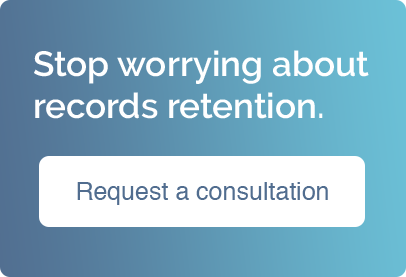Businesses of all sizes are required to retain many important records. Storing these documents, from customer transaction records to personal employee data, represents a significant challenge, especially when businesses must comply with state and federal record retention guidelines.
To complicate matters further, 97% of organizations admit to having minimal or no standardized processes for digital documentation. If your business is struggling to comply with guidelines and make record storage more efficient, IRCH is here to help. In this article, we provide tips and advice for starting a customized records retention schedule.
What is a records retention schedule?
In short, a records retention schedule is a policy document stating the length of time different business records may be retained before they are destroyed or archived. By drafting such a schedule, organizations can maintain compliance with legal requirements, reduce storage costs, and improve workflow efficiency.
How to customize a records retention schedule
The following steps will help you get started with records retention:
- Assess your needs: Identify what types of records you commonly generate (e.g., financial records, customer data, employee data, legal documents, etc.)
- Understand regulatory requirements: Make sure you know what federal, state, and industry-specific regulations may apply to your business. For example, healthcare providers will need to comply with HIPAA. You can then categorize your documents according to specific laws.
- Assign retention periods: Once you’ve established which records fit under certain categories, you can determine how long to keep them. Remember to consider factors such as legal mandates and historical value.
- Write up your retention schedule: This document should include information about how you will delete or archive different types of records.
- Train employees in record retention: Roll out your schedule and provide training to employees on how to use it.
Choose IRCH for records management
Writing up and maintaining a record retention schedule is hard work. After all, you’ll need to update the document regularly to ensure you’re not breaking any laws. The good news? IRCH offers customized software and advice to help you avoid costly penalties and free up precious storage space. Find out more or get in touch today.


